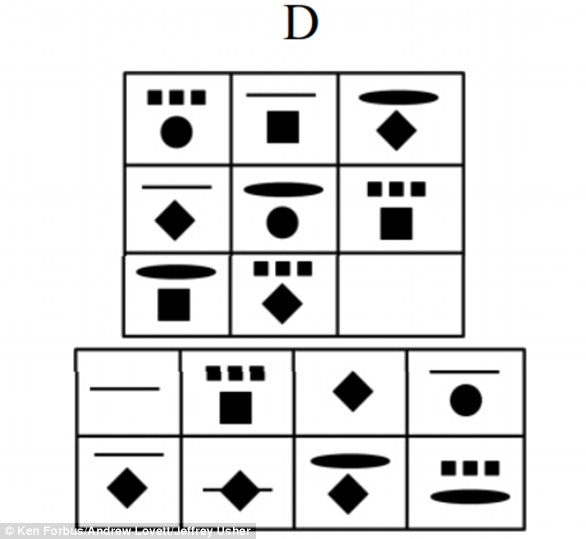Answer: The Raven's Progressive Matrix test is a nonverbal test of IQ.
From http://www.dailymail.co.uk/sciencetech/article-4137466/AI-scores-higher-average-person-standard-test.html
Sometimes also called Raven's Matrices, or the RPM test, the Raven's Progressive Matrix test is a 60 item psychological test that is regarded as a measure of intelligence quotient (IQ). The test consists of a series of geometric images arranged in a square grid with one image missing. The objective of the test taker is to determine the identity of the omitted image that correctly finishes the pattern. The options are presented as a multiple choice question. The grids may be as large as 6x6 or as small as 2x2.
The questions are arranged in 5 sets, A through E, each set containing 12 questions. The questions get more difficult in order. The original set of Raven's Matrices were only in black and white, although some newer versions include color images as well.
High functioning individuals with Asperger syndrome are known to score better than the average population.
The original test was developed in 1938 by British psychologist John C. Raven. His first formulation of the test was entirely in black and white.
A test with color was developed for younger subjects, as well as for individuals who might have difficulty maintaining a level of attention. The test questions are presented with a colored background with the exception of the last few slides, which are presented in black and white as in the original test.
There is also an advanced set of questions which are designed to assess the IQ of those with higher than average intelligence.
